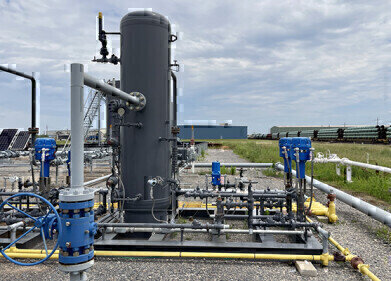Air Clean Up
Which Organs Does Air Pollution Damage?
Jun 17 2019
Air pollution has long been associated with damage to the lungs, given that it forms part of the very fabric of the air we breathe. But what other organs in the body could it be affecting? All of them, according to a comprehensive global review conducted by the Forum of International Respiratory Societies.
With over 70,000 research papers linking air pollution to bodily damage to draw from, and ever more sophisticated forms of environmental monitoring, the authors of the paper were able to draw alarming conclusions from their review. As well as being inhaled, pollutants such as particulate matter 2.5 (PM2.5) are small enough to be absorbed into the bloodstream, allowing them to reach all parts of the human body from head to toe. Here are just some of the areas affected:
- Brain and mind
After inhalation, air pollutions can travel directly up the olfactory passage and arrive at the brain. Medical conditions affecting the brain and mind which have been linked to air pollution include dementia, autism, Alzheimer’s disease, reduced intelligence and schizophrenia. Poor sleeping patterns are also thought to be caused in part by exposure to poor air quality as well.
- Skin and bones
As the body’s largest organ and one that is continually exposed to the air around us, it’s little surprise that the skin can suffer from air pollution. Premature signs of aging, increased sensitivity, dehydration, breakouts of rashes, increased wrinkles and discolouration or alteration of pigmentation are all symptoms that your skin is under stress from the air around it. Meanwhile, toxic airways can also lead to a weakening of your skeleton’s structural integrity through conditions such as brittle bone disease.
- Heart and lungs
All manner of lung conditions, from asthma to lung cancer to chronic laryngitis to emphysema, have been linked to inhalation of contaminants in the air. Meanwhile, when those contaminants reach the bloodstream, they can constrict arteries and place extra strain on the heart, increasing the incidence of strokes and heart disease.
- Abdominal organs
Prolonged exposure to dangerous levels of pollutants is believed to be at least partially responsible for the contraction of diseases such as kidney cancer and bladder cancer, as well as diabetes, Crohn’s disease, fatty liver disease and irritable bowel syndrome. Given that the liver is chiefly responsible for removing toxins from the body, the adverse effect of air pollution on this abdominal organ is not particularly surprising – but it is concerning.
- Reproductive system
Finally, and perhaps most concerning of all, air pollution can have a seriously detrimental effect on the reproductive system. Not only can in reduce fertility in both men and women, it can increase the likelihood of miscarriages in females. Furthermore, it can have further-reaching repercussions for unborn children, leading to low birth weights, stunted growth and health problems in the child’s infancy.
Events
Apr 18 2024 Shanghai, China
Apr 22 2024 Hannover, Germany
Apr 23 2024 Kuala Lumpur, Malaysia
Apr 24 2024 Sao Paulo, Brasil
May 05 2024 Seville, Spain














